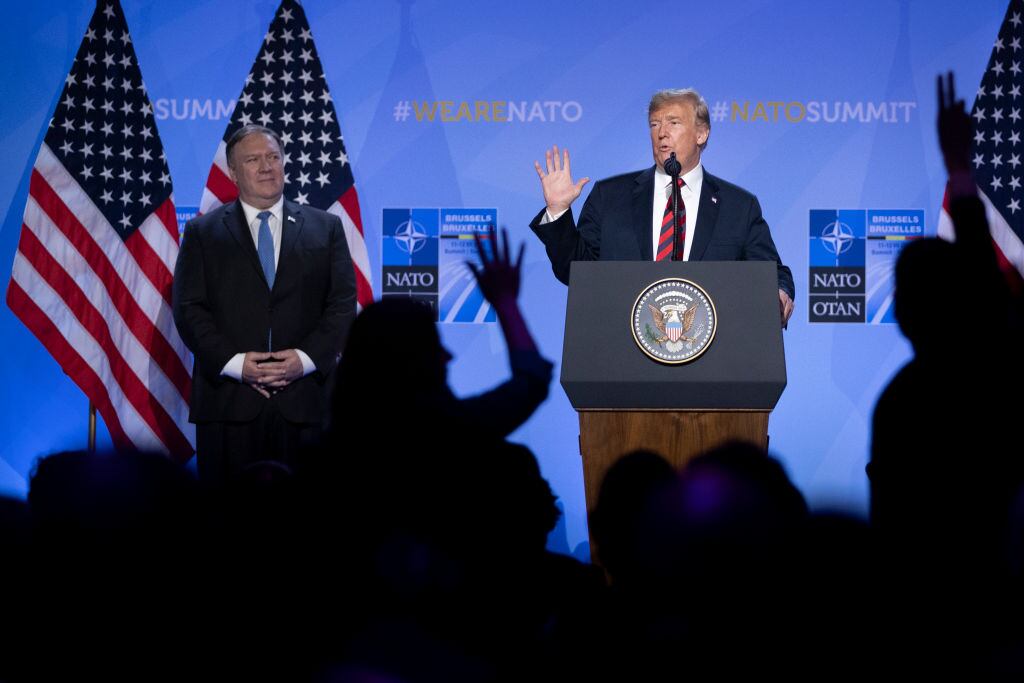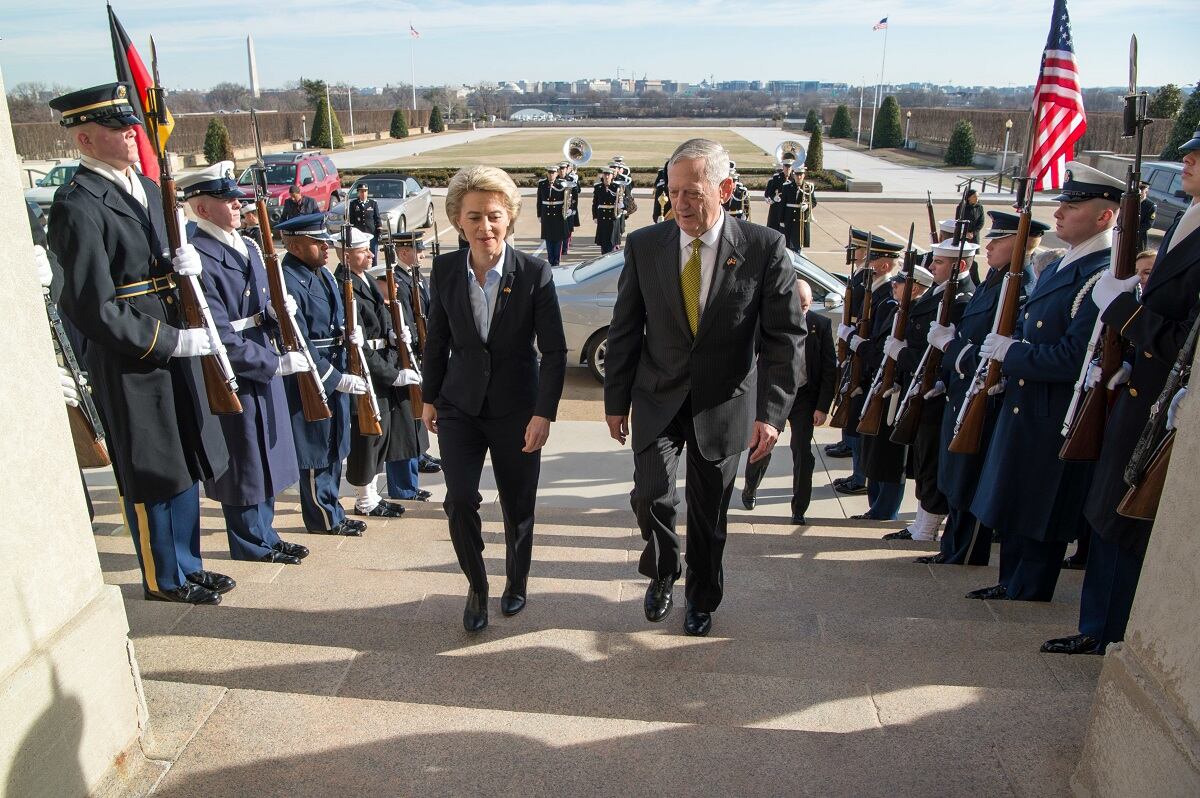WASHINGTON ― The fundamental goal of NATO is to provide a united front that would deter potential adversaries from trying to strike at one or more of the member states.
But is that deterrence structure still relevant in 2018, when threats are less likely to come in the form of a tank invasion and more likely to come in a hybrid form, mixing cyber capabilities, propaganda and apparent nonstate actors?
That was the question tackled on the sidelines of the NATO summit Wednesday during an event hosted by the NATO Engages consortium and Defense News’ associate editor for Europe, Sebastian Sprenger.
Click here for more from the NATO summit.
Noam Perski, international government lead for data firm Palantir Technologies, questioned whether the democratic structures of the West are set up in such a way that they can truly deter a hybrid threat.
For instance, military and law enforcement structures ― including the gathering and sharing of intelligence ― are purposefully stovepiped away from each other in many Western nations. By design, military units shouldn’t have a hand in overseeing citizens, according to how some governments are structured.
But how does that work when a potential adversary insinuates itself into the population and acts more like a criminal threat than a traditional military? How does one stop a country like Russia from meddling in elections, or disrupting a power grid inside a nation?
RELATED

The best way, Perski indicated, would be to make sure information-gathering systems throughout the alliance are shared both across nations and internally.
“Our ability to use all the sources available to us, the ability to share that with us so that data turns into intelligence, is actually quite limited,” Perski posited. “Given an infinite amount of time we can come up with a good picture of things, but the world moves very quickly … a lot of this [comes down to] what is your technical [ability] to do this.”
But Knud Bartels, the retired Danish general who served as the kingdom’s top uniformed official before becoming chairman of the NATO Military Committee from 2011-2015, warned that technology can only solve one part of the problem.
Pointing to history, Bartels recalled how prior to the infamous Tet Offensive in Vietnam, intel analysts warned of a burst of activity, indicating an attack, but decision-makers trusted their eyes over the information.
“The real issue is when you present that to the decision-maker, does it fit into the [decision-maker’s] preconceived world?” Bartel said.
“We all need to keep in mind, be it at the political decision-making level or military decision-making level, are we seeing what we want to see, or are we seeing what is really taking place and shaping up?”
While there admittedly may be a struggle on the hybrid side, the traditional structure of NATO deterrence ― based around the Article 5 clause, which provides a collective defense for NATO members ― still works on the great conflict level, according to Lithuanian Defence Minister Raimundas Karoblis.
“We don’t have any doubts Article 5 would work,” Karoblis said, before going on to downplay concerns that recent tensions between the U.S. and Europe could lead to a fundamental break in NATO.
“Yes, sometimes we have some misunderstand[ings] in the family, but these are family matters, and we cannot give any opportunities to our adversary so that he could think to risk testing the unity of NATO and the reliability of NATO,” Karoblis said. “We are members of NATO and the guarantees [the alliance] definitely will work, even in the worst possible scenario.”
RELATED

Put another way: “We’re not as bad as we say we are,” said German Commander Helena Linder-Jess, the first female commanding officer of the German Navy. However, she too agreed that changes are needed to deal with the modern threats that aren’t covered in the traditional NATO structure.
Linder-Jess perhaps encapsulated the fundamental challenge facing the alliance right now when asked by a Latvian lawmaker about why NATO nations aren’t doing more strategic forecasting.
She defended the work done by the various militaries, saying the nations try their best to consider the long term. But fundamentally, “you plan and you do that strategic plan, [but] things happen and you have to react to those things, and that interrupts your planning.”
“Maybe it is also that you have the feeling we are being reactive because there is so much going on,” she added.
Aaron Mehta was deputy editor and senior Pentagon correspondent for Defense News, covering policy, strategy and acquisition at the highest levels of the Defense Department and its international partners.







